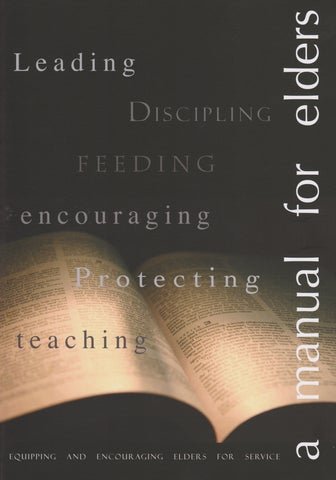Stephen recently preached a 7-part series on Elders ahead of our forthcoming elder election on 18th January. Having previously listed some resources on elders, here are some more - with a focus on older, Scottish resources:
16th Century
The Second Book of Discipline (1578) has a couple of useful sections on elders. It also states the historic Scottish position on how office bearers are to be chosen - namely ‘by the judgment of the eldership and consent of the congregation’.
17th Century
The Covenanter James Guthrie published A Treatise of Ruling Elders and Deacons in 1652, following a request from the General Assembly of the church.
He contended in the preface that God's wrath lay on the Church of Scotland because of 'rotten' church members and officers, polluting the whole. 'We have boasted of a Reformation of the ordinances', he wrote 'without seeking as really to reform Church-Officers, and Church-Members, according to the pattern thereof'. Guthrie's little book, aiming to summarise existing publications on the topic, was therefore an important contribution to furthering the covenanted work of Reformation in the 17th century in the area of church government. Indeed, while some things Guthrie addresses may no longer be around (eg the office of Doctor), much of it is still relevant. He warns elders against only punishing (certain kinds of) sins of commission, while ignoring sins of omission. He addresses the question of what to do if unqualified men have already been elected. He urges that if deacons are required to be tested before appointed, how much more should elders be? His pastoral heart comes through as he warns elders not to use church discipline as punishment or penance but 'a spiritual medicine, for humbling and gaining of the soul'. His encouragement to deacons tempted to count their office as less significant is a particular highlight: 'The Lord Jesus himself did not disdain to wash his disciples' feet; angels are all of them ministering Spirits, sent forth to minister for their sakes who are appointed to be heirs of Salvation; why then should any think it below them to serve the Church of Christ, and to minister to the Saints in this employment?'
18th Century
A sermon preached by Scottish Borders minister Thomas Boston - on the day of an elder ordination - entitled ‘The Duties of Ruling Elders and People’. Under his section on the duty of the people to their elders, Boston says: "Can you fall upon a more expedite way to advance the kingdom of the devil in the congregation, than to discourage and weaken the hands of those who are set over you in the Lord? Is there a fairer way to rout the army, than to make their leaders useless?"
20th Century
From a historical point of view, G. D. Henderson’s book The Scottish Ruling Elder (1935), contains a wealth of information, going back to the time of the Covenanters. He notes: “One of the most important steps taken by the early Covenanters…was to ensure the restoration of the ruling elder to a position of effectiveness”
21st Century
In 2006 the RP Church of Ireland produced A Manual for Elders, stating ‘For the past 150 years the Reformed Presbyterian Church has rightly placed much emphasis on the training of its teaching elders. However we have not place a similar emphasis on the training those men who are called by God to the 'ruling' eldership in our congregations. The purpose of this manual is to seek to equip, encourage and train elders to carry out their God-given task’.

